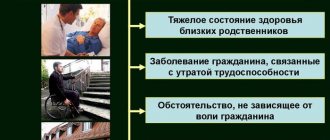Prices for the services of a lawyer in criminal matters
The measure of state coercion, which is prescribed by a criminal court upon its verdict, is an effective means of restoring justice in society, further preventing the commission of offenses, as well as re-educating the convicted person.
The Criminal Code of the Russian Federation establishes an extensive system of penalties that either limit certain rights of a person or completely deprive them. Compulsory labor is a type of criminal punishment.
The sanctions of many articles contain an indication of them: until 2010, 67 articles of the Special Part provided for such a measure of coercion, and since 2010, with amendments to the Criminal Code, the number of articles containing criminal punishment in the form of compulsory labor has increased by another 46.
Avoidance of mandatory work
Malicious evasion by a convicted person of execution of a criminal court sentence entails the replacement of the applied measure of state coercion with another type of punishment (for example, imprisonment). In this case, the portion of the sentence served is calculated. When determining the term of imprisonment, the judge applies a more severe type of criminal legal sanction in accordance with the calculation of 8 hours of unpaid socially useful labor per 1 day of imprisonment.
How does malicious evasion manifest itself?
The following actions are classified as malicious evasion:
- Shelter from administrative accounting in the UII;
- Violation of labor discipline more than 2 times in 1 month;
- Missing an obligation without good reason more than 2 times in 1 month.
If a person has disappeared from registration and is evading serving a sentence, then he must be put on the wanted list. A person who maliciously evades may be detained for 2 days, with this period extended to 30 days.
Who is not assigned compulsory work?
The Criminal Code has established the circle of persons who are prohibited from being assigned to compulsory labor. These are:
- Disabled people of group 1;
- Military personnel who perform military service by conscription or contract;
- Pregnant women;
- Women with children under 3 years old.
“Evasion of payment” of insurance premiums is a deliberate act
Payment evasion is the deliberate actions of the payer, due to which money does not flow into the state budget. In this case - insurance premiums.
The following may be subject to criminal liability:
- founders;
- general director;
- chief accountant;
- individual entrepreneur.
If a group of people is accused of payment evasion, then the investigation will have to prove the participation and degree of responsibility of each of them.
The law punishes:
- for indicating knowingly false data in a tax return and other forms of reporting (for example, underestimating the base for calculating insurance premiums);
- for inaction, expressed in failure to submit all required documents (if organizations or individual entrepreneurs, contrary to the law, ignore filing reports on insurance contributions to the tax and social insurance services).
When an accountant does not provide calculations on approved forms or shows inaccurate amounts of contributions, underestimating the basis for calculation, then all these actions will be considered evasion. It does not matter whether he did this on the instructions of his superior or on his own initiative.
For example, the director of an enterprise instructs the accountant to give part of the wages to employees “in envelopes.” In this situation, the amount from which insurance premiums should be calculated will be underestimated, and the insurance premiums themselves will also be underpaid. Both the director and the accountant face criminal penalties.
The table shows the classification of non-payment amounts - which amount is considered large and which is considered especially large. Depending on this, the punishment will vary.
| Insurance premiums for medical, pension insurance in case of temporary disability and in connection with maternity | ||
| Large size | Extra large size | |
| Organization | More than 5 million rubles for three financial years in a row (when non-payment is more than 25% of the amount to be paid); An amount exceeding 15 million rubles (if the amount of non-payment does not exceed 25%). | More than 15 million rubles for three years in a row (when non-payment is more than 50% of the amount to be paid); An amount exceeding 45 million rubles. |
| IP | More than 900 thousand rubles (when non-payment is more than 10% of the amount to be paid); An amount exceeding 2.7 million rubles. | More than 4.5 million rubles (when non-payment is more than 20% of the amount to be paid); An amount exceeding 13.5 million rubles. |
| Accident insurance | ||
| Large size | Extra large size | |
| More than 2 million rubles (when non-payment is more than 10% of the amount to be paid); An amount exceeding 6 million rubles. | More than 10 million rubles (when non-payment is more than 10% of the amount to be paid); An amount exceeding 30 million rubles. | |
Classification of amounts of non-payment of insurance premiums
If the tax service during an audit reveals that an individual entrepreneur or other organization does not pay insurance premiums in a large or especially large amount, liability arises under Articles 198 and 199 of the Criminal Code of the Russian Federation. In this case, arrears are taken into account within three financial years in a row. Arrears in insurance premiums are added to tax arrears.
If an organization has 5 million rubles in tax debt, and has not yet paid 300,000 rubles in insurance premiums, then the total amount will be 5 million 300 rubles - non-payment on a large scale.
Payment evasion is the deliberate failure to submit documents to the Federal Tax Service and the Social Insurance Fund or the inclusion of false data in reporting. The founder, general director, chief accountant and individual entrepreneur can be held liable.
Size and timing
When assigning a criminal law measure of state coercion, the judge in the operative part of his ruling indicates only the amount of the sanction.
The criminal sanction in question can be set for a period of 60 to 240 hours. At the same time, it is prohibited to oblige a convicted person to perform socially useful work for more than 4 hours a day. For juvenile offenders, the domestic legislator has established a maximum sentence of up to 160 hours.
If there is a multiplicity of offenses and a corresponding sentence is passed on a set of crimes, the court must comply with the maximum amount of the sanction. If the judge in his sentence imposes more than 240 hours of compulsory labor, then this criminal procedural act will be considered illegal and subject to cancellation.
What to remember about non-payment of insurance premiums
- Contributions for pension, social and health insurance are now received by the Federal Tax Service. And only contributions for “injuries” are still sent to the Social Insurance Fund. Reports to the Federal Tax Service and the Social Insurance Fund must be sent every quarter, within 30 days after the end of the period;
- Payment evasion is the intentional actions of the payer. The law provides for two types of such actions: failure to submit documents or entering false data into reporting;
- The founder, general director, individual entrepreneur and chief accountant can be punished for this crime. If the accountant did everything according to the instructions of the manager, both will be punished;
- If tax officials find violations regarding the payment of insurance premiums, they will check the statements for three financial years in a row. Arrears on insurance premiums are added to tax arrears;
- The punishment for evasion of payment depends on the amount of debt - whether it is large or especially large. There are different responsibilities for individual entrepreneurs and companies - for the latter the punishment is harsher;
- You can avoid criminal liability: this option is possible for those who committed a crime for the first time, admitted guilt and paid the entire amount of arrears on insurance premiums, along with penalties and a fine imposed by the court.
Execution of punishment
The responsible body for the execution of a court sentence, as stipulated by the Penal Code of the Russian Federation, is the criminal-executive inspection at the place of permanent residence of the convicted person. The convicted person is obliged to begin performing socially useful work no later than 15 days from the date the penal inspection receives a copy of the court verdict.
Penitentiary inspections are charged with the responsibility of maintaining regular records and constant monitoring of the behavior of convicts, as well as a total calculation of the period during which the person fulfilled his obligation.
Procedure for execution of punishment
A person cannot be involved in compulsory work for more than 4 hours on weekends (non-working days). On weekdays this period should not exceed 2 hours. However, with the consent of the convicted person, this time may be extended to 4 hours. Within 1 week, unpaid work must be at least 12 hours. However, this time is not included in the length of service.
Restrictions for convicts
For those sentenced to this category of criminal law sanctions, the legislation establishes certain restrictions. Thus, if a person goes on annual leave at his place of work, this does not suspend the obligation to perform unpaid work. The execution of punishment is not suspended during the holidays at the educational institution. Thus, the execution of a court sentence cannot be suspended in the absence of valid reasons.
Suspension of serving a sentence or release from it is carried out only on the basis of a court decision (ruling). If a convicted person is diagnosed with a serious illness that will prevent him from participating in unpaid public work, as well as in the event of a disability of the 1st group, the person has the right to petition for his release from further execution of the sentence.
Deferment of service can be applied to women from the moment they are officially granted social leave for pregnancy and childbirth.
Author of the article
Dmitry Leonov
Work experience 15 years, specialization - housing, family, inheritance, land, criminal cases.
Author's rating
721
Articles written
712
about the author
Insurance premiums are equal to taxes
All employers, including individual entrepreneurs who hire workers under contracts, must pay mandatory insurance contributions. They include 4 types of payments:
- pension contributions (OPS);
- medical premiums (CHI);
- contributions in case of temporary disability and in connection with maternity (VNiM) - go to pay benefits for illness, maternity leave, etc.;
- contributions from industrial accidents and occupational diseases (NSiPZ).
What do you need to pay and where?
Until December 31, 2016, these fees were the responsibility of individual departments: the Pension Fund (PFR), the Social Insurance Fund (FSS) and the Federal Compulsory Medical Insurance Fund (FFOMS).
According to these funds, employers often committed violations - both in reporting and in paying the required funds. According to estimates by the Ministry of Finance, the system received less than about 10% of all collections into extra-budgetary funds.
Therefore, the state has tightened penalties for evading the payment of mandatory insurance contributions. In 2022, their administration was transferred under the control of the tax authorities, and the Tax Code was supplemented with Article 34 - “Insurance premiums”.
Funds intended to replenish extra-budgetary funds have been equated in status to taxes. Therefore, criminal liability was introduced for non-payment of insurance premiums, as well as for tax evasion. Amendments to Articles 198 and 199 of the Criminal Code of the Russian Federation (tax evasion) were introduced by Federal Law No. 250-FZ of July 29, 2017. Amendments to it came into force on August 10, 2022.
Since the administration of insurance premiums was transferred to the Federal Tax Service, funds for pension, medical and social insurance are now also transferred there.
All funds are credited to a single budget account. Payments for various taxes/contributions have an individual BCC (budget classification code). Federal Tax Service employees distribute payments from the general account to the appropriate budget subaccounts depending on the classification code. The exception is contributions “for injuries”, which are still transferred to the Social Insurance Fund.
New reporting was approved in 2022. According to the innovations, a single calculation is now filled out for pension, medical and social insurance, which is submitted to the Federal Tax Service on a quarterly basis, within 30 days after the end of the period. The calculation for “injuries” is compiled separately and submitted to the Social Insurance Fund.
Calculations are submitted in paper form, and if the average number of employees exceeds 25 people, then it is necessary to submit an electronic version of the document on insurance premiums.
Now the calculation of contributions for pension, medical, and social insurance must be transferred not to the funds, but to the tax service. The calculation of “injuries” is still accepted by the Social Insurance Fund.





